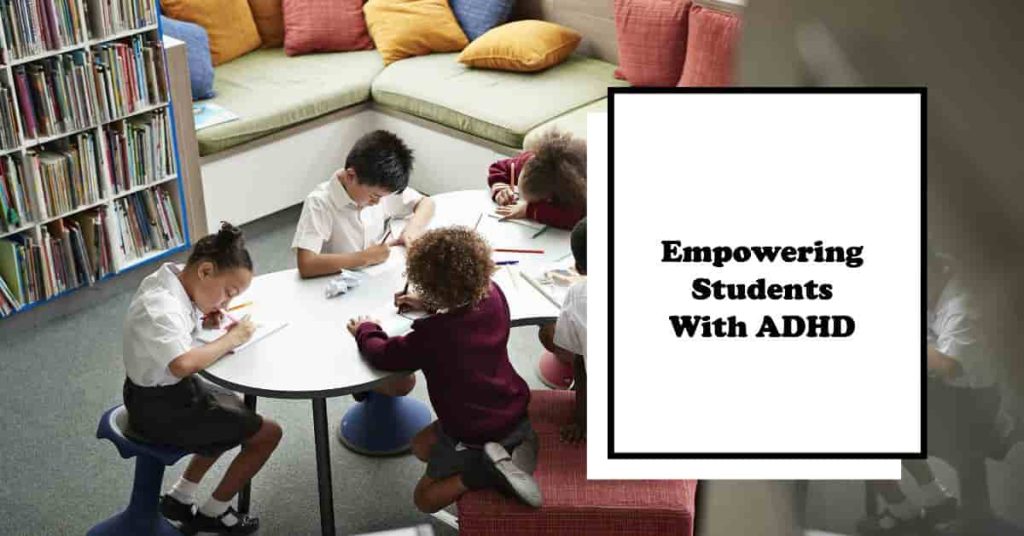Understanding and Supporting Students with Attention Deficit Hyperactivity Disorder (ADHD)

Attention Deficit Hyperactivity Disorder (ADHD) is a neurodevelopmental condition that affects many students, presenting challenges in focus, self-regulation, and academic performance. As educators, it is crucial to understand the complexities of ADHD and provide the necessary support to help these students thrive. At Valdymas College of Advanced Studies, we are committed to creating an inclusive learning environment where every student, including those with ADHD, can achieve their full potential.In this blog post, we will explore essential insights on:
- Understanding ADHD: A Multifaceted Condition
- Strategies for Supporting Students with ADHD
- The Role of Teachers in Managing ADHD
- How Valdymas College Fosters an Inclusive Environment for Students with ADHD
Understanding ADHD: A Multifaceted Condition
ADHD is characterized by symptoms such as inattention, hyperactivity, and impulsivity, which can vary in severity from one student to another. It is important to recognize that ADHD is not simply a behavioral issue but a neurological condition that affects how students process information and manage tasks. According to the American Psychiatric Association (APA, 2013), ADHD impacts executive functioning, which includes skills such as organization, time management, and self-control.
At Valdymas College, we understand that ADHD manifests differently in each student. Some may struggle with focusing on assignments, while others may find it difficult to sit still during class. Recognizing these differences is key to providing effective support and ensuring that our teaching methods are tailored to meet the unique needs of each student.
Strategies for Supporting Students with ADHD
Supporting students with ADHD requires a multi-faceted approach that includes individualized instruction, classroom accommodations, and behavioral interventions. At Valdymas College, we employ a range of strategies to help students with ADHD succeed academically and socially.
One effective strategy is the use of structured routines and clear expectations. Students with ADHD often benefit from predictable schedules and a consistent classroom environment. Visual aids, such as charts and checklists, are also used to help students stay organized and manage their tasks. Research by DuPaul and Stoner (2014) highlights the importance of structure in helping students with ADHD stay on track and reduce anxiety.
Another key strategy is incorporating movement and sensory breaks into the school day. These breaks allow students to release excess energy and refocus on their work. Teachers at Valdymas College are trained to recognize when a student may need a break and to provide opportunities for physical activity in a way that is not disruptive to the learning environment.
The Role of Teachers in Managing ADHD
Teachers play a crucial role in supporting students with ADHD. At Valdymas College, our educators are not only knowledgeable about ADHD but are also skilled in implementing strategies that cater to the needs of these students. We emphasize the importance of positive reinforcement, where teachers acknowledge and reward good behavior and effort. This approach helps build students’ self-esteem and encourages them to stay engaged in their learning.
Furthermore, our teachers maintain open communication with parents and other support staff to ensure a collaborative approach to managing ADHD. Regular meetings and progress reports help to monitor the student’s development and make necessary adjustments to their learning plan. According to Barkley (2015), collaboration between educators and parents is essential in creating a supportive environment for students with ADHD.
How Valdymas College Fosters an Inclusive Environment for Students with ADHD
At Valdymas College, inclusivity is at the heart of our educational philosophy. We strive to create a learning environment where all students, including those with ADHD, feel valued and supported. Our commitment to inclusivity is reflected in our small class sizes, which allow for personalized attention and support for each student.
In addition to academic support, we offer counseling services to help students with ADHD develop coping strategies and social skills. These services are designed to address the emotional and psychological challenges that often accompany ADHD, such as low self-esteem and social difficulties.
Our holistic approach to education ensures that students with ADHD are not only supported in their academic pursuits but also in their overall development. By fostering a positive and inclusive environment, we help students with ADHD build confidence, develop resilience, and achieve success in all areas of their lives.By understanding the complexities of ADHD and implementing effective support strategies, Valdymas College of Advanced Studies is dedicated to providing a nurturing environment where every student, regardless of their challenges, can thrive.
References
- American Psychiatric Association. (2013). Diagnostic and Statistical Manual of Mental Disorders(5th ed.). Arlington, VA: American Psychiatric Publishing.
- Barkley, R. A. (2015). Attention-Deficit Hyperactivity Disorder: A Handbook for Diagnosis and Treatment(4th ed.). The Guilford Press.
- DuPaul, G. J., & Stoner, G. (2014). ADHD in the Schools: Assessment and Intervention Strategies(3rd ed.). The Guilford Press.



